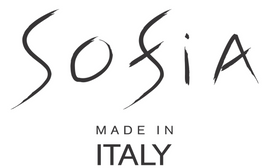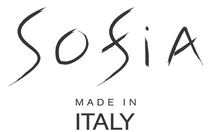World Fashion and Celebrity in recent year
In recent years, the intersection of fashion and celebrity has grown more intertwined than ever before. The rise of social media platforms like Instagram and TikTok, the emergence of influencers, and the increasing involvement of celebrities in fashion design have reshaped the global fashion landscape. This shift has led to a new era where celebrities are not only trendsetters but also powerful players in the fashion industry.
Celebrities as Designers:
One of the most notable trends in the fashion world has been the rise of celebrity-driven fashion lines. Many stars have transitioned from being mere style icons to becoming fashion entrepreneurs, launching their own clothing and accessory brands. Rihanna’s Fenty is a prime example of this trend. Since its launch in 2017, Fenty has revolutionized the beauty and fashion industry with its focus on inclusivity. Rihanna’s brand, particularly Fenty Beauty, garnered widespread acclaim for offering a broad range of foundation shades, highlighting the need for diversity in the beauty world. Her Fenty fashion line under the luxury conglomerate LVMH also made headlines as she became the first Black woman to lead a luxury brand under the LVMH umbrella.
Similarly, Kanye West’s Yeezy brand has redefined streetwear and high fashion with its minimalist aesthetic and high-end price tags. West’s designs, which include oversized silhouettes, neutral palettes, and innovative footwear, have left a lasting impact on both high fashion and the sneaker culture. Yeezy’s partnership with Adidas to create limited-edition sneakers has turned these products into highly sought-after collectibles, with fans willing to pay thousands of dollars for exclusive drops.
Celebrity-driven fashion ventures have not been limited to these big names. From Serena Williams’ eponymous clothing line to Victoria Beckham’s successful fashion brand, celebrities are increasingly taking control of their fashion identities by creating their own labels.
The Power of Social Media:
In the past, fashion trends were largely dictated by designers and fashion editors. Today, social media platforms have democratized fashion, allowing celebrities and influencers to set trends in real time. Platforms like Instagram and TikTok have given celebrities a direct connection to their fans, where they can showcase their personal style and endorse fashion brands. This direct access has allowed celebrities to become influential fashion icons without needing the traditional media’s endorsement.
Celebrities like Zendaya and TimothéeChalamet have gained significant recognition not just for their acting skills but for their bold and daring fashion choices, frequently going viral on social media. Zendaya, in particular, has earned praise for her red carpet looks, often wearing custom designs from cutting-edge designers like Tom Ford, Balmain, and Valentino. Chalamet’s gender-fluid style, which incorporates elements like tailored suits and unconventional accessories, has challenged traditional male fashion norms.
In recent years, TikTok has emerged as a powerful platform for fashion influence. Viral challenges like the “Shein Hauls” and the “TikTok Fashion Challenges” have promoted fast fashion, while high-end fashion brands like Louis Vuitton and Gucci have tapped into TikTok’s younger audience through sponsored posts and partnerships with influencers. Celebrities like Addison Rae and Bella Poarch have leveraged their TikTok fame to collaborate with luxury brands, blending high fashion with viral internet trends.
Diversity:
The past few years have seen a growing emphasis on diversity and inclusivity in the fashion industry, driven in part by celebrities advocating for more representation. This shift can be seen in the casting of models from diverse backgrounds on runways and in ad campaigns, as well as in the expanded offerings of clothing sizes and makeup shades from major brands.
Celebrities like Lizzo and Billy Porter have been at the forefront of promoting body positivity and breaking down gender norms in fashion. Lizzo has used her platform to champion body diversity, collaborating with brands like Savage x Fenty to create size-inclusive lingerie lines. Billy Porter’s bold red carpet fashion, such as his tuxedo gown at the Oscars, has challenged conventional ideas of masculinity and pushed the conversation on gender-fluid fashion forward.
Sustainability and Ethical Fashion:
As awareness around climate change and ethical practices has grown, sustainability has become a major focus in the fashion world. Many celebrities have aligned themselves with eco-friendly brands or launched their own sustainable fashion lines. Emma Watson, for example, has long been an advocate for ethical fashion, frequently wearing eco-friendly outfits on the red carpet and promoting sustainable brands through her platform. Other celebrities, like Meghan Markle and Stella McCartney, have also championed sustainability by supporting brands that prioritize ethical production methods and environmentally conscious practices.
Fashion and celebrity culture have become inseparable in recent years, with stars not only influencing trends but actively shaping the industry. From launching fashion lines to advocating for inclusivity and sustainability, celebrities are no longer passive participants in fashion—they are key players driving the conversation forward. As social media continues to evolve, the relationship between fashion and celebrity is likely to deepen, creating new opportunities for creativity, innovation, and inclusivity in the global fashion landscape.










